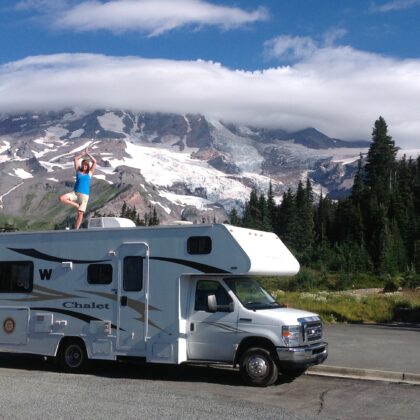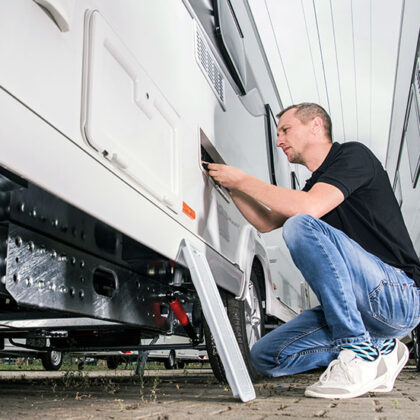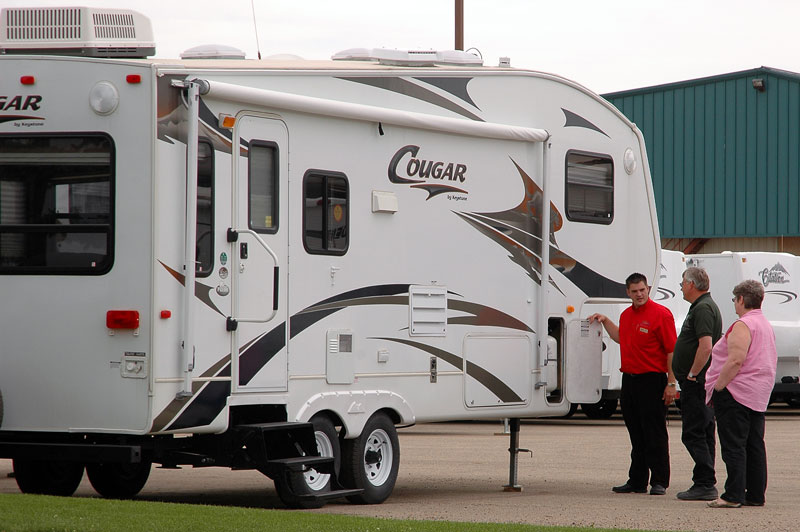
by Greg Gerber
Buying an RV is an exciting step toward adventure, freedom, and the open road. But before you can start planning your road trips, there’s an important decision to make: should you buy your RV from a professional dealership or a private seller?
This age-old dilemma for RV buyers doesn’t have a single “correct” answer. Both options come with advantages and drawbacks, and understanding your choices can help you make the best decision for your needs, budget, and lifestyle.
The Case for Buying an RV from a Professional RV Dealership
Wide Selection and Convenience
For many buyers, visiting a professional RV dealership is the logical first step. Dealerships offer a level of professionalism, service, and selection that’s hard to match. With a wide range of RVs under one roof—from shiny new motorhomes with the latest technology to well-maintained pre-owned models—dealerships cater to different preferences and budgets.
At a dealership, you can compare brands, floor plans, and features in one place. While online research can give you an idea of what’s available, walking through RVs in person allows you to explore every nook and cranny, potentially uncovering options that better suit your needs.
Peace of Mind with RV Warranties and Services
New RVs often come with warranties that cover repairs for manufacturing defects and mechanical issues. Some dealerships also offer certified pre-owned programs, providing assurance that the RV has been inspected and is road-ready.
Dealerships may offer additional peace of mind through services like paint protection packages or tire protection plans, which can save you from unexpected expenses. However, whether you’re buying from a dealership or a private seller, it’s always a good idea to have the RV evaluated by an NRVIA Certified Inspector before finalizing the purchase.
RV Financing Options
Dealerships often partner with multiple lenders to provide competitive financing options. They can simplify the loan application process and sometimes secure better terms, such as lower down payments or longer loan durations, than you might find on your own.
RV Trade-In Opportunities
If you already own an RV, dealerships usually offer trade-in options. This can save you the hassle of selling your old RV privately, streamlining the process of upgrading to a new model.
Downsides of Buying an RV from a Dealership
While dealerships offer convenience and services, these come at a cost. High overhead expenses mean you’ll likely pay more than in a private sale. Additionally, some buyers find the high-pressure sales tactics and hidden fees—such as “destination fees” or charges for walkthrough training—off-putting.
Sales taxes can also be significant, depending on the state. For example, buying from a private seller in Arizona allowed me to save thousands in sales tax, though states like Wisconsin collect taxes through vehicle registration regardless of the sale type.
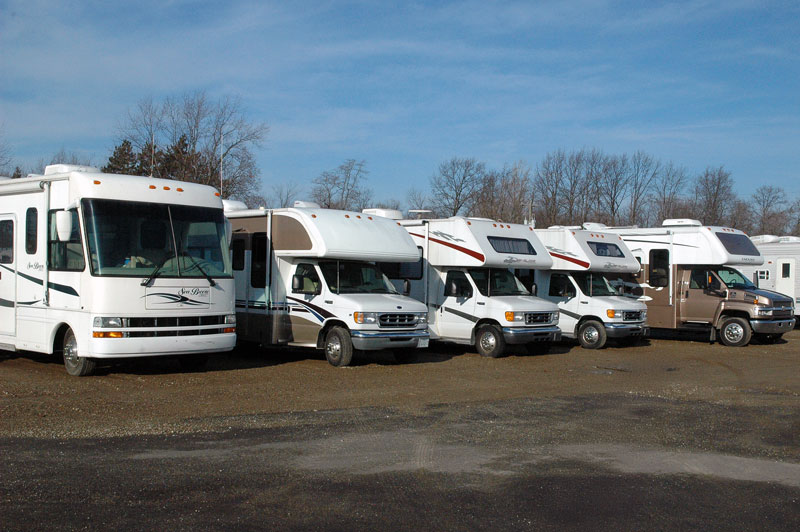
The Appeal of Buying an RV from a Private Seller
Lower Costs
Private sellers often list RVs at more competitive prices than dealerships, as they don’t have the same overhead costs. They may also be more willing to negotiate, especially if they’re eager to sell quickly. Unlike dealerships, where approvals may require multiple levels of management, private sellers can finalize deals on the spot.
A More Personal Experience
Buying from a private seller is typically more laid-back than the high-energy environment of a dealership. Without the pressure to upsell warranties or add-ons, buyers can take their time to inspect the RV, ask questions, and make informed decisions.
Many private sellers are RV enthusiasts themselves and can provide valuable insights into the vehicle’s history, quirks, and maintenance needs. When I purchased my motorhome, the seller even offered helpful tips and adjusted the price to account for minor repairs, like replacing the slide toppers. He also handed me $300 in cash to cover my first fuel-up—a thoughtful gesture that left a lasting impression.
Risks of Buying an RV from a Private Seller
Private sales come with risks. Most transactions are “as-is,” meaning there’s no warranty or guarantee. If issues arise after the purchase, you’ll be responsible for repairs. That’s why a professional inspection is critical.
Private sellers also typically require full payment upfront. Buyers need to secure their own financing or pay in cash, which might not be feasible for everyone. Additionally, there’s a risk of fraud or misrepresentation, so it’s essential to verify the title and ownership before completing the purchase.
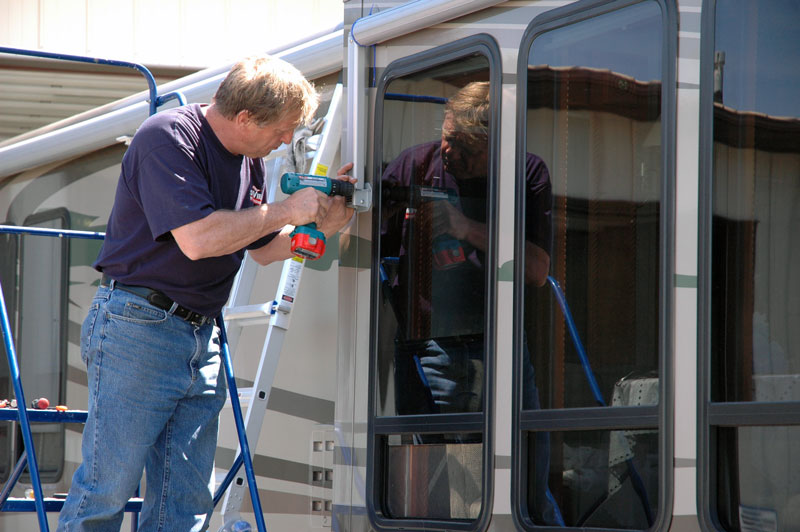
Additional Factors to Consider
RV Inspection
Whether you’re buying from a dealership or a private seller, an RV inspection is crucial. Inspectors can identify potential issues—from leaky plumbing to electrical faults—that might not be immediately obvious. This step can save you from costly surprises down the road.
Timing and Market Trends
The RV market can fluctuate based on demand. Peak buying seasons, like spring and early summer, often mean higher prices and less room for negotiation. Shopping during the off-season might help you secure a better deal.
Future RV Maintenance and Repairs
Consider your comfort level with repairs and maintenance. If you’re not handy or don’t want to invest time in upkeep, a dealership’s support services and warranties might be worth the added cost. Conversely, if you’re confident in your ability to handle repairs, buying from a private seller could save you money.
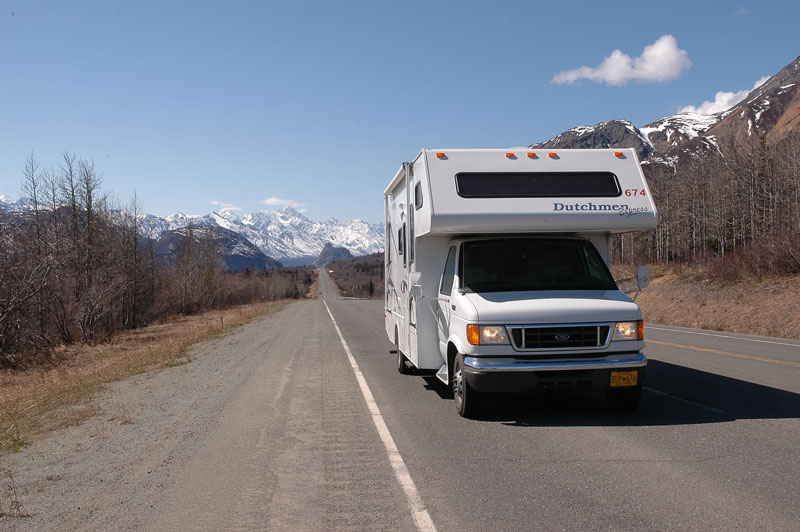
Making the Right Choice
The decision to buy from a dealership or a private seller ultimately depends on your priorities:
- Choose a dealership if you value convenience, selection, financing options, and long-term support.
- Opt for a private seller if you’re looking for budget-friendly options and are comfortable handling inspections and potential repairs.
Whichever route you take, careful research and preparation will ensure your RV-buying experience leads to many happy miles on the road ahead.
Thanks for reading the Gone Workamping blog from Workamper News. Join Workamper.com today to see all the new job opportunities for RVers, as well as the training and resources to confidently find the right Workamping job for you – easily and securely.





